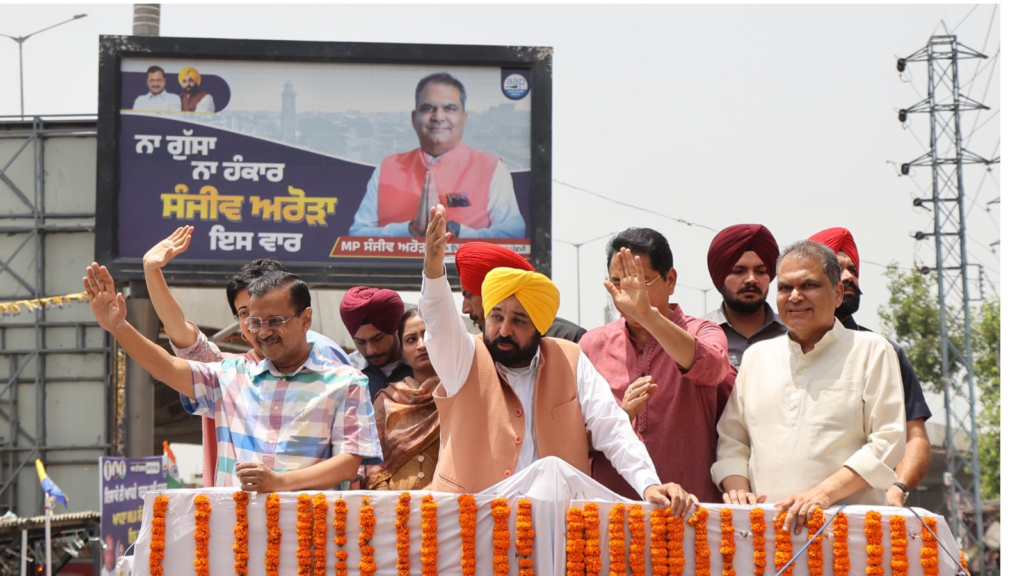ChandigarhAugust 24, 2025 02:41 PM IST
First published on: Aug 24, 2025 at 02:41 PM IST
With the BJP registering a steady increase in vote share across Punjab, the ruling Aam Aadmi Party (AAP) has shifted its focus to reaching out to Hindus in the state.
In its bid to expand its footprint among Hindus, the AAP has promised to enact a Hindu Temple Act and launched a Sanatan Seva Samiti headed by Hindu leader Deepak Bali. The party has also been running other faith-based initiatives apart from handing over the reins of the state unit to a Hindu face, Aman Arora. Arora was picked to lead the state unit last November, marking a departure from the party’s stance of appointing a Sikh at the helm in Punjab.
These moves come after the AAP saw its vote share dip to 26.2% in last year’s Lok Sabha elections from the 42% it secured in the 2022 Assembly polls. In contrast, the BJP’s vote share grew from 6.6% in 2022 to 18% in the Lok Sabha polls. “Since then, the AAP has been trying to woo the Hindu voter base as it is confident that it can depend on rural voters,” an AAP leader said.
“The efforts are seen as calculated moves ahead of the 2027 Assembly polls and are intended to chip away at the BJP’s gains among the Hindus while tackling anti-incumbency. The BJP’s good showing has heightened the jostling to consolidate Hindu votes,” a source said.
According to the 2011 Census, Sikhs make up 57.69% of Punjab’s population while Hindus, Muslims, and Christians account for 38.49%, 1.93% and 1.26% of the population, respectively.
What the party has been doing
In May, Chief Minister Bhagwant Mann said his government would soon enact the Hindu Temple Act, a law that will give Hindu temples the right to manage their own affairs without government “interference”. If enforced, the law will fulfill a long-pending demand of the state Hindu Welfare Board.
The CM’s announcement came after chairman of the board Mahant Ravikant Muni repeatedly raised the demand. This move was widely seen as a strategic attempt to extend AAP’s appeal among Hindu voters, particularly in urban centers such as Amritsar, Jalandhar, Ludhiana, and Patiala, where mismanagement of temple affairs has been a long-standing grievance.
The Mann government recently also established 14 caste-based boards, mostly catering to Hindu communities. These include the Brahmin Welfare Board, Dalit Vikas Board, Rajput Kalyan Board, Kanojia Welfare Board, Vimukt Jati Welfare Board, Prajapati Samaj Welfare Board, Aggarwal Welfare Board and Swarnakar Welfare Board.
Some other boards that have been constituted to cater to non-Hindu communities include the Gujjar Welfare Board (comprising Hindus and Muslims), Saini Samaj Welfare Board (comprising Hindus and Sikhs) and Ramgarhia Welfare Board (comprising Hindus and Sikhs), Punjab State Muslim Development Board and Masih Welfare Board.
In late 2024, the AAP also embarked on a “Shukrana Yatra (thanksgiving procession)” from Patiala to Amritsar which included halts at prominent Hindu religious sites like the Kali Mata Temple, Durgiana Temple, and Ram Tirath to be visible among Hindus. Mann also recently visited the Kali Mata Temple in Patiala.




